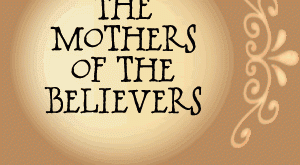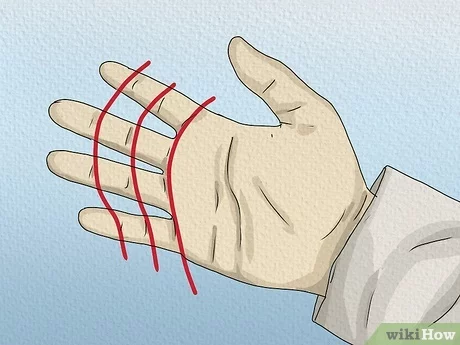 The seventh century which saw the rise of Islam also saw Christian Europe enters the Dark Ages. In the Western Europe the invading Goths had almost obliterated the culture and technology of the Romans.
The seventh century which saw the rise of Islam also saw Christian Europe enters the Dark Ages. In the Western Europe the invading Goths had almost obliterated the culture and technology of the Romans.
In the Eastern Roman Empire, centering in Constantinople, the Church had all but suppressed Greek science and philosophy. India was languishing in a period of stagnation; and China, while blossoming richly in the arts, was almost wholly devoid of science.
It was during this period of decline and stagnation that Muslim Arabs, the followers of Muhammad (S) – the Prophet of Islam, became the torchbearers or vanguards of knowledge in our world. They created an Islamic civilization, driven by inquiry and invention, which was to become the envy of the rest of the world for nearly a millennium.
It is this spirit, the unquenched thirst for knowledge, which made Abu Rayhan al-Biruni to ask a question on inheritance law or some other related issue while he was lying on his deathbed. (Abu Rayhan al-Biruni was a great scientist, physicist, astronomer, sociologist, linguist, historian and mathematician whose true worth may never be known. He is considered the father of unified field theory by Nobel Laureate – late Professor Abdus Salam. He lived nearly a thousand years ago and was a contemporary of Ibn Sina (Avicenna) and Sultan Mahmoud of Ghazni.)
The jurisprudent was quite amazed that a dying man should show interest in such matters.
Abu Rayhan said, “I should like to ask you: which is better, to die with knowledge or to die without it?”
The man said, “Of course, it is better to know and then die.”
Abu Rayhan said, “That is why I asked my first question.”
Shortly after the jurisprudent had reached his home, the cries of lamentation told him that Abu Rayhan had died. (Murtaza Motahari: Spiritual Discourses)
Speaking about the Islamic civilization, Carli Fiorina, the former (highly talented and visionary) CEO of Hewlett Packard, said, “Its architects designed buildings that defied gravity. Its mathematicians created the algebra and algorithms that would enable the building of computers, and the creation of encryption. Its doctors examined the human body, and found new cures for disease. Its astronomers looked into the heavens, named the stars, and paved the way for space travel and exploration. Its writers created thousands of stories; stories of courage, romance and magic. When other nations were afraid of ideas, this civilization thrived on them, and kept them alive. When censors threatened to wipe out knowledge from past civilizations, this civilization kept the knowledge alive, and passed it on to others. While modern Western civilization shares many of these traits, the civilization I'm talking about was the Islamic world from the year 800 to 1600, which included the Ottoman Empire and the courts of Baghdad, Damascus and Cairo, and enlightened rulers like Suleiman the Magnificent. Although we are often unaware of our indebtedness to this other civilization, its gifts are very much a part of our heritage. The technology industry would not exist without the contributions of Arab mathematicians.”
Truly, there is a hardly a field that is not indebted to these pioneering children of Islam. Here below is a short list (by no means a comprehensive one) of Muslim scientists from the 8th to the 15th century CE:
• 701 (died) C.E. – Khalid Ibn Yazeed – Alchemy
• 721-803 – Jabir Ibn Haiyan (Geber) – Alchemy (Great Muslim Alchemist)
• 740 – Al-Asma’i – Zoology, Botany, Animal Husbandry
• 780 – Al-Khwarizmi (Algorizm) – Mathematics (Algebra, Calculus) –
Astronomy
• 776-868 – ‘Amr ibn Bahr al-Jajiz – Zoology
• 787 – Al Balkhi, Ja'far Ibn Muhammas (Albumasar) – Astronomy
• 796 (died) – Al-Fazari, Ibrahim Ibn Habib – Astronomy
• 800 – Ibn Ishaq Al-Kindi – (Alkindus) – Medicine, Philosophy, Physics,
Optics
• 815 – Al-Dinawari, Abu-Hanifa Ahmed Ibn Dawood – Mathematics,
Linguistics
• 816 – Al Balkhi – Geography (World Map)
• 836 (b.) – Thabit Ibn Qurrah (Thebit) – Astronomy, Mechanics, Geometry
• 838-870 – Ali Ibn Rabban Al-Tabari – Medicine, Mathematics
• 840 – Abu Kamil ibn Aslam – Algebra, Mathematics
• 852 – Al Battani Abu Abdillah – Mathematics, Astronomy, Engineering
• 857 – Ibn Masawaih You'hanna-Medicine
• 858-929 – Abu Abdullah Al-Battani (Albategnius) – Astronomy,
Mathematics
• 860 – Al-Farghani, Abu al-`Abbas (Al-Fraganus) – Astronomy, Civil
Engineering
• 864-930 – Al-Razi (Rhazes) – Medicine, Ophthalmology, Chemistry
• 873 (died) – Al-Kindi – Physics, Optics, Metallurgy, Oceanography,
Philosophy
• 880-943 – Sinan ibn Thabit al-Qurra – Mathematics, Astronomy,
Medicine, Anatomy
• 888 (died) – ‘Abbas ibn Firnas – Mechanics, Planetarium, Artificial Crystals
• 900 (died) – Abu Hamed Al-ustrulabi – Astronomy
• 903-986 – Al-Sufi (Azophi) – Astronomy
• 908 (b.) – Ibrahim ibn Sinan ibn Thabit Ibn Qurrah – Optics, Astronomy,
Geometry, Engineering
• 920 (b.) – Abul Hasan al-Uqlidisi – Mathematics
• 912 (died) – Al-Tamimi Muhammad Ibn Amyal (Attmimi) – Alchemy
• 923 (died) – Al-Nirizi, AlFadl Ibn Ahmed (Altibrizi) – Mathematics,
Astronomy
• 930 – Ibn Miskawayh, Ahmed Abu-Ali-Medicine, Alchemy
• 932 – Ahmed Al-Tabari – Medicine
• 934 – al Istakhr II – Geography (World Map)
• 936-1013 – Abu Al-Qasim Al-Zahravi (Albucasis) – Surgery, Medicine
• 940-997 – Abu Wafa Muhammad Al-Buzjani – Mathematics, Astronomy,
Geometry
• 940-1000 (ca.) – Abu Sahl Waijan ibn Rustam al-Quhi (al-Kuhi) –
Astronomy, Mathematics, Geometry
• 953-1029 – Abu Bakr al-Karaji – Mathematics
• 943 – Ibn Hawqal – Geography (World Map)
• 950 – Al Majrett'ti Abu-al Qasim – Astronomy, Alchemy, Mathematics
• 958 (died) – Abul Hasan Ali al-Mas’udi – Geography, History
• 960 (died) – Ibn Wahshiyh, Abu Baker – Alchemy, Botany
• 965-1040 – Ibn Al-Haitham (Alhazen) – Physics, Optics, Mathematics
• 970-1036 – Abu Nasr Mansur ibn Ali ibn Iraqi – Mathematics, Astronomy
• 973-1048 – Abu Rayhan Al-Biruni – Astronomy, Mathematics, History,
Linguistics
• 976 – Ibn Abil Ashath – Medicine
• 980 (b.) – Al-Baghdadi – Mathematics, Advanced Numerical Methods
• 980-1037 – Ibn Sina (Avicenna) – Medicine, Philosophy, Mathematics,
Astronomy
• 983 – Ikhwan A-Safa (Assafa) – (Group of Muslim Scientists)
• 1001 – Ibn Wardi – Geography (World Map)
• 1008 (died) – Ibn Yunus – Astronomy, Mathematics
• 1019 – Al-Hasib Alkarji – Mathematics
• 1029-1087 – Al-Zarqali (Arzachel) – Astronomy (Invented Astrolabe)
• 1044 – Omar Al-Khayyam – Mathematics, Astronomy, Poetry
• 1060 (died) – Ali Ibn Ridwan Abu'Hassan Ali – Medicine
• 1077 – Ibn Abi-Sadia Abul Qasim – Medicine
• 1090-1161 – Ibn Zuhr (Avenzoar) – Surgery, Medicine
• 1095 – Ibn Bajah, Mohammed Ibn Yahya (Avenpace) – Astronomy,
Medicine
• 1097 – Ibn Al-Baitar Diauddin (Bitar) – Botany, Medicine, Pharmacology
• 1099 – Al-Idrisi (Dreses) – Geography, Zoology, World Map (First Globe)
• 1110-1185 – Ibn Tufayl, Abubacer Al-Qaysi – Philosophy, Medicine
• 1120 (died) -Al-Tuhra-ee, Al-Husain Ibn Ali – Alchemy, Poem
• 1128 – Ibn Rushd (Averroe's) – Philosophy, Medicine, Astronomy
• 1130 (b.) – Al-Samawal – Algebra
• 1135 – Ibn Maymun, Musa (Maimonides) – Medicine, Philosophy
• 1135 (b.) – Sharaf al-Din – Algebra, Geometry
• 1140 – Al-Badee Al-Ustralabi – Astronomy, Mathematics
• 1155 (died) – Abdel-al Rahman Al Khazin-Astronomy
• 1162 – Al Baghdadi, Abdel-Lateef Muwaffaq – Medicine, Geography
• 1165 – Ibn A-Rumiyyah Abul'Abbas (Annabati) – Botany
• 1173 – Rasheed Al-Deen Al-Suri – Botany
• 1180 – Al-Samawal – Algebra
• 1184 – Al-Tifashi, Shihabud-Deen (Attifashi) – Metallurgy, Stones
• 1201-1274 – Nasir Al-Din Al-Tusi – Astronomy, Non-Euclidean Geometry
• 1203 – Ibn Abi-Usaibi'ah, Muwaffaq Al-Din – Medicine
• 1204 (died) – Al-Bitruji (Alpetragius) – Astronomy
• 1213-1288 – Ibn Al-Nafis Damishqui – Anatomy
• 1236 – Kutb Aldeen Al-Shirazi – Astronomy, Geography
• 1248 (died) – Ibn Al-Baitar – Pharmacy, Botany
• 1258 (b.) – Ibn Al-Banna (Al Murrakishi), Azdi – Medicine, Mathematics
• 1260 (b.) – Al-Farisi – Mathematics
• 1262 (died) – Al-Hassan Al-Murarakishi – Mathematics, Astronomy,
Geography
• 1270 – Abu al-Fath Abd al-Rahman al-Khazini – Physics, Astronomy
• 1273-1331 – Al-Fida (Abdulfeda) – Astronomy, Geography
• 1306 – Ibn Al-Shater Al Dimashqi – Astronomy, Mathematics
• 1320 (died)-Al Farisi Kamalud-deen Abul-Hassan – Astronomy, Physics
• 1341 (died) – Al-Jildaki, Muhammad Ibn Aidamer – Alchemy
• 1351 – Ibn Al-Majdi, Abu Abbas Ibn Tanbugha – Mathematics, Astronomy
• 1359 – Ibn Al-Magdi, Shihab-Udden Ibn Tanbugha – Mathematic,
Astronomy
• 1369 (died) – Ibn Katina – Medicine
• 1375 (died) – Ibn Shatir – Astronomy
• 1380-1424 – Ghiyath al-Din al Kashani – Numerical Analysis, Computation
• 1393-1449 – Ulugh Beg – Trigonometry, Astronomy
• 1412 (b.) – Abul Hasan ibn Ali al-Qalasadi – Algebra
(References: Hamed Abdel-Reheem Ead, Professor of Chemistry at Faculty of Science, University of Cairo Giza-Egypt and Director of Science Heritage Center, http://www.frcu.eun.eg/www/universities/html/shc/index.htm; See also the books: 100 Muslim Scientists by Abdur Rahman Sharif, Al-Khoui Pub., N.Y; Muslim Contribution to Science by Muhammad R. Mirza and Muhammad Iqbal Siddiqi, Chicago: Kazi Publications, 1986.)
With such a train of Muslim scholars, it is not difficult to understand why George Sarton said, "The main task of mankind was accomplished by Muslims. The greatest philosopher Al-Farabi was a Muslim; the greatest mathematicians Abul Kamil and Ibrahim Ibn Sinan were Muslims; the greatest geographer and encyclopaedist Al-Masudi was a Muslim; the greatest historian, Al-Tabari was still a Muslim." The Oxford History of Technology sums it up as follows: "There are few major technological innovations between 500 A.D. and 1500 that do not show some traces of the Islamic culture." Dr. Murad Wilfried Hofman, an ex-German diplomat and author, similarly writes, “The European intellectual exploits of the Renaissance would have been unthinkable without Ibn Sina, Ibn Rushd, al-Biruni, al-Khawarizmi, ar-Razi, lbn al-Haytham, Ibn Battuta and Ibn Khaldun.” [9]
History before Islam was a jumble of conjectures, myths and rumors. It was left to the Muslim historians who introduced for the first time the method of matn and sanad tracing the authenticity and integrity of the transmitted reports back to eyewitness accounts. According to the historian Henry Thomas Buckle ‘this practice was not adopted in Europe before 1597 AD.’ Another method: that of historical research and criticism – originated with the celebrated historian Ibn Khaldun. The author of Kashfuz Zunun gives a list of 1300 history books written in Arabic during the first few centuries of Islam. That is no small contribution!
The rise of Muslim rule was dramatic. So also was its decline to the point where in 1492 the Caliph Abdullah abandoned Granada to the conquering Spaniards, "weeping like a woman for what he could not defend like a man."
For the next five centuries while the Islamic civilization declined – politically, economically, socially and culturally, it set all Christendom aglow. Thus, the same period that saw a dawning of the Christian West, sadly, for the vast majority of Muslims living (outside the Ottoman and Mughal Empires) in Asia, Africa and Europe it has been a period of doom and gloom. By the mid-19th century, the Christian West had colonized all Muslim territories except what was left by then of the once powerful Ottoman Empire, setting in motion a process that not only saw the great plunder of immense natural resources but the utter decimation of former Islamic institutions. Nowhere was this destruction or strangulation felt more severely than in the intellectual sector. Consequently, when the former colonizers either had left on their own volition or were forced out in the post-World War II era, Muslims in the newly emerged nation states found out that they have become a nation of zeros. Their excellence in science, arts and literature — a matter of much national pride — has vanished and become only a matter of fond memory about a distant and glorious past that has nothing in common with the current harsh reality!
Some years ago a published UN report on Arab development noted that the Arab world comprising of 22 countries had translated about 330 books annually. That is a pitiful number, only a fifth of the number of the books that (tiny) Greece (alone) translates in a year! (Spain translates an average of 100,000 books annually.) Why such an allergy or aversion from those whose forefathers did not mind translating older works successfully to regain the heritage of antiquity, analyzing, collating, correcting and supplementing substantially the material that was beneficial to mankind? Why is the literacy rate low among Muslims when the first revealed message in the Qur’an is ‘Iqra(meaning: Read)?
How do Muslims get out of this predicament? What strategy should they follow?
To be continued>>
-Asian Tribune-
Post Disclaimer | Support Us
Support Us
The sailanmuslim.com web site entirely supported by individual donors and well wishers. If you regularly visit this site and wish to show your appreciation, or if you wish to see further development of sailanmuslim.com, please donate us
IMPORTANT : All content hosted on sailanmuslim.com is solely for non-commercial purposes and with the permission of original copyright holders. Any other use of the hosted content, such as for financial gain, requires express approval from the copyright owners.
 Sri lanka Muslims Web Portal Sri Lanka Muslims News Center
Sri lanka Muslims Web Portal Sri Lanka Muslims News Center
 Donate
Donate


